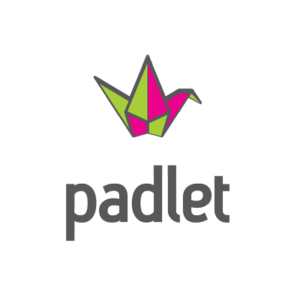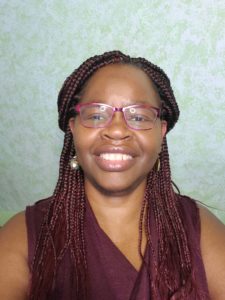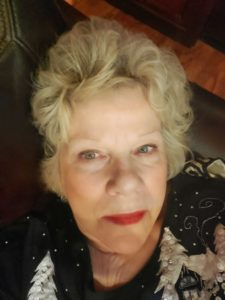Best Virtual Practices

“Using the AE&L Conference ReMix Team Challenge online support process provided by the VALRC (Google site, milestones, on track, and stay organized, PBL site, & focus question techniques); we identified the best practices, resolutions, and outcomes our students and teachers could implement to reduce the challenges associated with online learning and an online platform to “shine” in the virtual community.”
Team Shine Virtually
by Dr. Corlis Webb & Sherry Grantham
| Team Members | Project Summary: |
|---|---|
|
After much in-depth research and study, the Shine Virtually team is excited to share their findings to help others become stellar online instructors. From their project, they have put together useful information, references, tips, and tricks on the best techniques to serve virtual adult education students. They provide tools to develop digital technology skills and methods to keep students motivated in a virtual class. They also present effective teacher-student interactions that will increase student on-line persistence and digital efficacy. |
Project explanation and description
We are Shine Virtually. Our goal, as a team, was to determine best practices for adult learners and teachers in the virtual classroom. We met regularly using the Zoom platform to discuss ideas, practices, and areas that had been of concern to us as teachers, managers, and administrators that may have also been a challenge for our students. We found that because the online platform was new to students and teachers, we sought to differentiate the challenges in the classroom between face-to-face interactions and the online environment. Through our meetings and research, we narrowed down the importance of online learning for students and teachers through various resources and tools.
Using the AE&L Conference ReMix Team Challenge online support process provided by the VALRC (Google site, milestones, on track, and stay organized, PBL site, & focus question techniques); we identified the best practices, resolutions, and outcomes our students and teachers could implement to reduce the challenges associated with online learning and an online platform to “shine” in the virtual community.
Project outcomes and takeaways
Although there were many facets to online learning and so much to learn from this experience, we identified the top three needs/areas where students and teachers could shine virtually – digital literacy, motivation, and persistence.
We realize that these challenges may continue to be challenges in the adult education and literacy space but we hope that what we have found as obstacles can become benefits to the adult education and literacy community in order to maintain our presence in research, status, and history as a result of COVID-19.
We have been able to personally implement some of the tools and techniques that we discovered into our classroom experiences, such as taking time to learn some of the functions and features of the online technology (Zoom or Google Meets) and implementing the Canva Greeting Card tool to make students feel more welcomed. These efforts have improved program data by increasing student retention and program goals.
Other adult education programs can benefit from what we have learned from our project. Our advice? Don’t be afraid of the online community. Embrace it and relax throughout the process. Use the greeting card app as a way to maintain contact with students before, during, after, and between sessions to support classroom community.
We also gained insights through our experience with project-based learning (PBL).We learned more about adult education through this process using collaboration, teamwork, and creativity. PBL provides a more organized approach to teaching and learning. Instead of the teacher as the sage on the stage, the student becomes the sage on the stage. Including PBL in classrooms promotes a more focused and structured learning environment that can enhance a deeper level of learning.
Take a look for yourself at Team Shine Virtually’s Showcase presentation along with their recommended tips, tools, and resources.

We are including some of the comments received for each showcase team. View more of the showcase discussion in the 2020 AE&L Conference ReMix TeamShowcase Padlet.
“Something that made me think was how to make my students feel like they are an important part of my classroom – whether they attend or not.”
“Something that I plan to put into practice is exploring canva.com to create engaging virtual backgrounds and the life experiences bingo to connect with students and build rapport to increase the sense of community.”
“I was inspired by ways to engage learners in the virtual environment.”
“I plan to use the resources shared by Shine Virtually.”
“Something that made me think was how we can figure out what motivates our learners. Everyone is different so it may take several tries.”

Corlis Webb, Ed.D. has been working part-time in adult education as both a volunteer tutor and a substitute teacher for the past eight years teaching Pre-GED®, citizenship, and ESL classes. She is an instructional designer by day developing and creating course material in three different sectors—social services, transportation, and the government. Corlis enjoys student “aha moments” and finding interactive and motivating ways to teach her students. Participating in the AE&L Conference as part of the Shine Virtually team has allowed her to meet new people while developing new ways to support, encourage, and transform students in the adult education arena.
 Sherry Grantham is the Regional Specialist for Region 17 Rappahannock Community College Adult Education Program. She has been working in adult education serving as an instructor as well as the Regional Specialist for the past seven years.
Sherry Grantham is the Regional Specialist for Region 17 Rappahannock Community College Adult Education Program. She has been working in adult education serving as an instructor as well as the Regional Specialist for the past seven years.